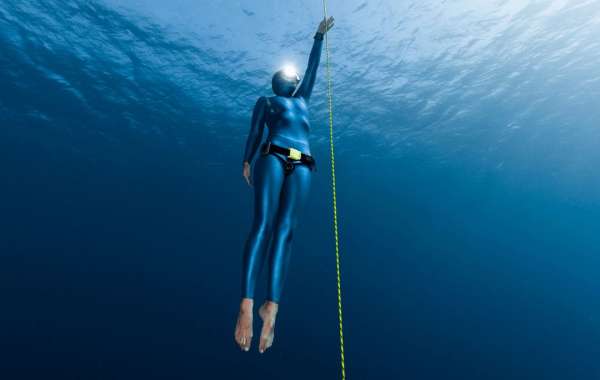Freediving in Bali: Exploring the Depths of the Island of the Gods
Bali is famous for its stunning landscapes, rich culture, and spiritual vibes, but for those who love the ocean, this Indonesian paradise offers something even more special: incredible freediving opportunities. Whether you’re a beginner eager to experience the calm serenity of holding your breath underwater or an experienced freediver looking to push your limits, Bali’s diverse underwater world provides the perfect environment.
Why Freedive in Bali?
Bali is surrounded by vibrant coral reefs, clear waters, and a remarkable variety of marine life, making it a prime spot for freediving. The island offers everything from shallow reefs and shipwrecks to deeper drop-offs and walls. The warm tropical waters and excellent visibility, often up to 30 meters in some locations, make it an ideal place for freediving enthusiasts to enjoy the underwater world without the need for heavy scuba gear.
The island’s freediving scene is well-developed, with several freediving schools offering courses, workshops, and training for divers of all skill levels. Whether you're taking your first plunge or preparing for competitive diving, Bali’s freediving community is welcoming and supportive.
Top Freediving Spots in Bali
Tulamben (USAT Liberty Shipwreck): Tulamben is one of Bali's most iconic freediving sites. The USAT Liberty, a World War II cargo shipwreck, rests just a few meters below the surface, making it accessible to both beginner and advanced freedivers. The wreck is covered in coral and teeming with marine life, including schools of fish, turtles, and the occasional reef shark. It’s a breathtaking experience to glide over the sunken ship in complete silence, surrounded by history and vibrant marine biodiversity.
Amed: Amed, located just north of Tulamben, is known for its laid-back atmosphere and stunning underwater landscapes. This area features a mix of coral walls, sandy slopes, and reefs, offering great variety for freedivers. Amed’s gentle conditions are perfect for beginners practicing their techniques, but also provide challenging depth opportunities for advanced divers.
Blue Lagoon (Padang Bai): Blue Lagoon is a hidden gem for freedivers. Its shallow waters and colorful coral gardens are home to an array of fish and critters, including moray eels, cuttlefish, and reef sharks. The area’s calm waters and excellent visibility make it an ideal spot for both beginners and those looking for a more relaxed freediving experience.
Nusa Penida (Manta Point): For those seeking adventure, Nusa Penida, a small island off the coast of Bali, offers thrilling freediving opportunities. The famous Manta Point is a must-visit for any freediver. Here, you can encounter majestic manta rays gliding gracefully through the water. Freediving alongside these gentle giants is an experience that will leave you in awe of the ocean’s beauty. Nusa Penida is also known for its strong currents, which can be challenging but rewarding for experienced freedivers.
The Freediving Experience
Freediving is about more than just diving deep—it’s a practice of mindfulness and control. Holding your breath underwater brings a sense of peace and connection to the ocean. In Bali, freediving takes on a meditative quality, as the island’s spiritual energy seems to extend into the sea. Many freedivers in Bali describe the experience as almost transcendent, as they learn to relax, breathe deeply, and become one with the water.
The absence of heavy equipment allows for a deeper connection to the ocean and its creatures. Whether you're swimming over a coral reef, exploring a shipwreck, or drifting with the current, freediving gives you the freedom to move gracefully and quietly through the water, observing marine life in its natural habitat without disturbing the environment.
Freediving Schools and Courses
Bali is home to several freediving schools https://freediving-bali.com/ offering courses for all levels. From beginner classes that teach the basics of breath-hold diving to advanced training for deeper dives, there are options for everyone. Schools such as Apnea Bali and Freedive Flow offer structured programs, focusing on safety, technique, and mental preparation. These schools not only teach the physical aspects of freediving but also emphasize relaxation, breath control, and how to handle the pressure of deep dives.
For beginners, these courses are the perfect introduction to the world of freediving. You’ll learn how to manage your breath, equalize pressure, and dive safely. For more experienced freedivers, Bali’s schools offer opportunities to refine your skills and take your dives to greater depths.
Why Freediving in Bali is Unique
Freediving in Bali isn’t just about the underwater world; it’s about the entire experience. The island's spiritual essence and relaxed vibe naturally align with the mindful and meditative aspects of freediving. Freedivers in Bali often speak of the sense of calm and focus they find during their dives, enhanced by the island’s peaceful energy.
Additionally, Bali’s commitment to marine conservation adds an extra layer of meaning to the freediving experience. Many dive operators and freedivers are involved in efforts to protect coral reefs, clean up beaches, and raise awareness about ocean conservation. Freediving here is not only an adventure but also a way to engage with the island’s efforts to preserve its natural beauty.
Conclusion: Dive into Bali’s Underwater World
Freediving in Bali is a truly unique experience that combines adventure, tranquility, and a deep connection to nature. With its stunning dive sites, welcoming freediving community, and rich marine biodiversity, Bali offers something for every freediver. Whether you’re gliding over the iconic USAT Liberty wreck, swimming alongside manta rays, or practicing your breath control in Amed’s calm waters, freediving in Bali is a journey into the heart of the ocean—and a journey into yourself.
If you’re ready to explore the underwater world in a whole new way, Bali is the perfect place to dive in.




